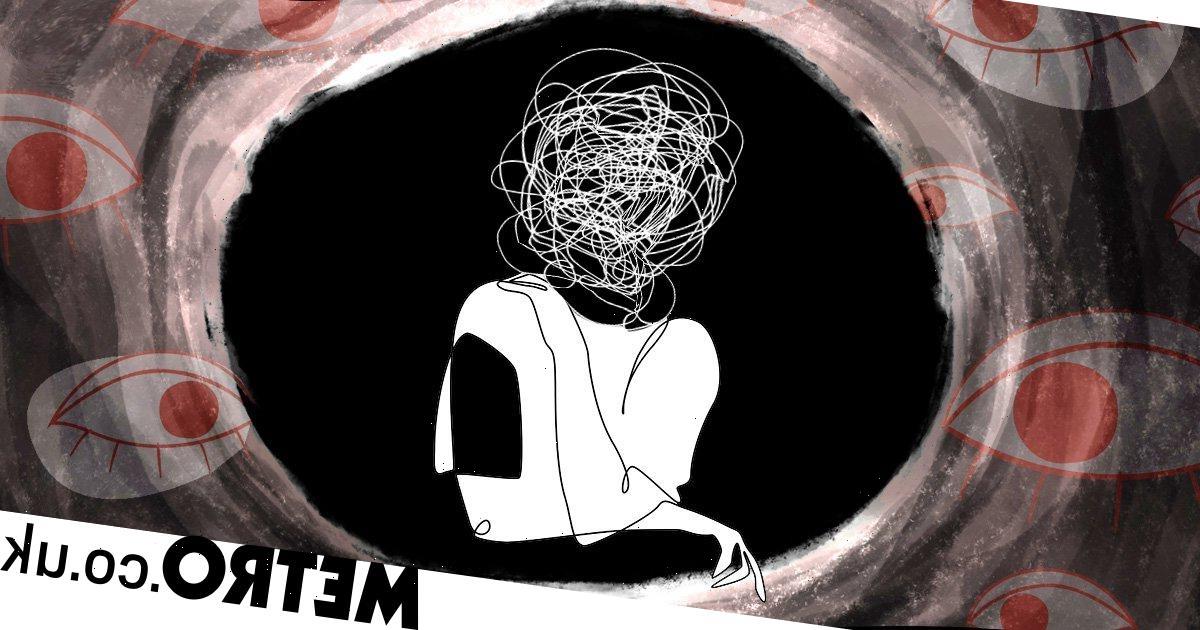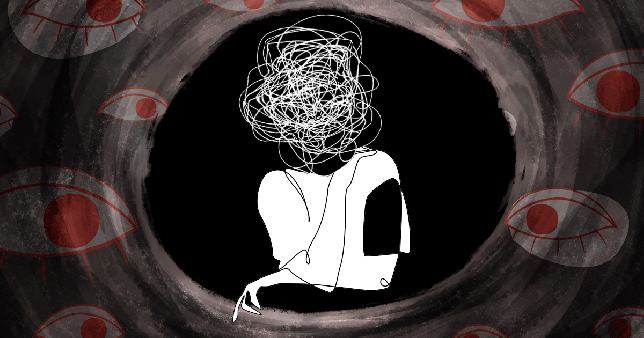Every once in a while, do you sit on your bedroom floor crying because you are convinced everyone you have ever met hates you?
You are so sure that all your friends secretly dislike you, and no one can tell you otherwise.
Maybe they read your WhatsApp message and didn’t reply straight away? Or perhaps their messages are shorter than usual? Did they go out somewhere and not invite you?
Well, they obviously hate you…right?
Wrong.
This feeling is so common – most of us have been there.
‘Self-doubt and wondering where we fit within hierarchies is all part of being human,’ says clinical psychologist Dr Marianne Trent.
‘When we are experiencing a low point, emotionally and physically, it can leave us more vulnerable to experience low self-esteem.’
Why does this happen?
‘Vulnerability and feeling lonely are both normal feelings,’ says Smriti Joshi, a lead psychologist at Wysa.
‘They might stem from past experiences such as being pushed out in the school playground or feeling isolated from coworkers.
‘Social anxiety is increasing, and technology – as well as the new culture of working from home – can exacerbate this, as we don’t always have those one-to-one interactions with others and can not pick up on visual cues or develop the same emotional bond.’
The nature of social media and the pressure to always be ‘on’ and available means that when our friends don’t reply to messages immediately, or if we see them out having fun, we jump to the conclusion that they hate us, explains Smriti.
‘Like you, people have lives, and sometimes we can’t always be there for our friends,’ she adds.
‘Also, as unique individuals, we have our own attachment styles, and some of these styles can make us more vulnerable based on how we expect a loved one to respond to us.
‘If they don’t respond in a way that makes us feel loved or cared for, it may feel like they don’t care for us.’
How to deal with ‘outcasting’ anxiety
Avoid seeking reassurance
Marianne explains that people who experience heightened anxiety and even symptoms of Obsessive Compulsive Disorder (OCD) often struggle to reassure themselves.
‘When we recognise that we are seeking reassurance from others it can be a sign that we need to learn to soothe and validate ourselves and trust in our own ability to be in control,’ she says.
‘This can happen where relationships have been controlling, or unhealthy features of gaslighting may have also crept in, which can undermine abilities to self soothe.’
If you do decide to reach out to a friend regarding their behaviour, Smriti suggests avoiding confrontational language.
‘Rather than saying something such as “you obviously hate me”, reposition the discussion to focus on how you are feeling,’ she says.
‘You can say things such as “I feel like there has been some distance between us” or even just ask “when can we meet up again? I love hanging out with you.”‘
Try to get to bottom of these thoughts
Smriti also suggests spending time with your thoughts.
She adds: ‘You might want to keep a mood diary or a journal or follow strategies based on CBT, which use a lot of reframing techniques such as: “I feel X, I’m presuming Y, how else can I look at this?”
‘Reflect on some moments when you may have had a lot on your plate or were struggling with something and may have got too engaged with your own issues and, as a result, spent less time with your friends or forgot to check in with them.’
Is there another reason friendship has changed?
Looking at other reasons that could lead to a friend going off the radar will help reframe your thoughts and help you squash the belief that they hate you.
‘It’s important to be mindful of our own thoughts about what other people are thinking or feeling,’ explains Smriti.
‘We need to ensure we aren’t projecting our worries or insecurities onto other people.
‘Sit down and think through your expectations of a friendship and how these are being met.
‘Also, remember, your concern that your friends hate you is just a thought. It’s not a fact. You don’t have to take action on it. Recognising this can be hugely empowering and liberating.
Enjoy your own company
‘It’s also important to work on being emotionally independent, so a loved one’s absence does not immediately trigger an extreme thought about them hating you,’ says Smriti.
‘Our feelings are our own responsibility, and it’s important that we are able to self-validate and keep ourselves occupied with things that bring us joy and a sense of calm or accomplishment.
‘This will boost your self-esteem, which in turn will help you feel emotionally independent.
‘This is the key to becoming more secure, confident and happy. It will also improve your outlook on your relationships.’
Do you have a story to share?
Get in touch by emailing [email protected].
Source: Read Full Article

